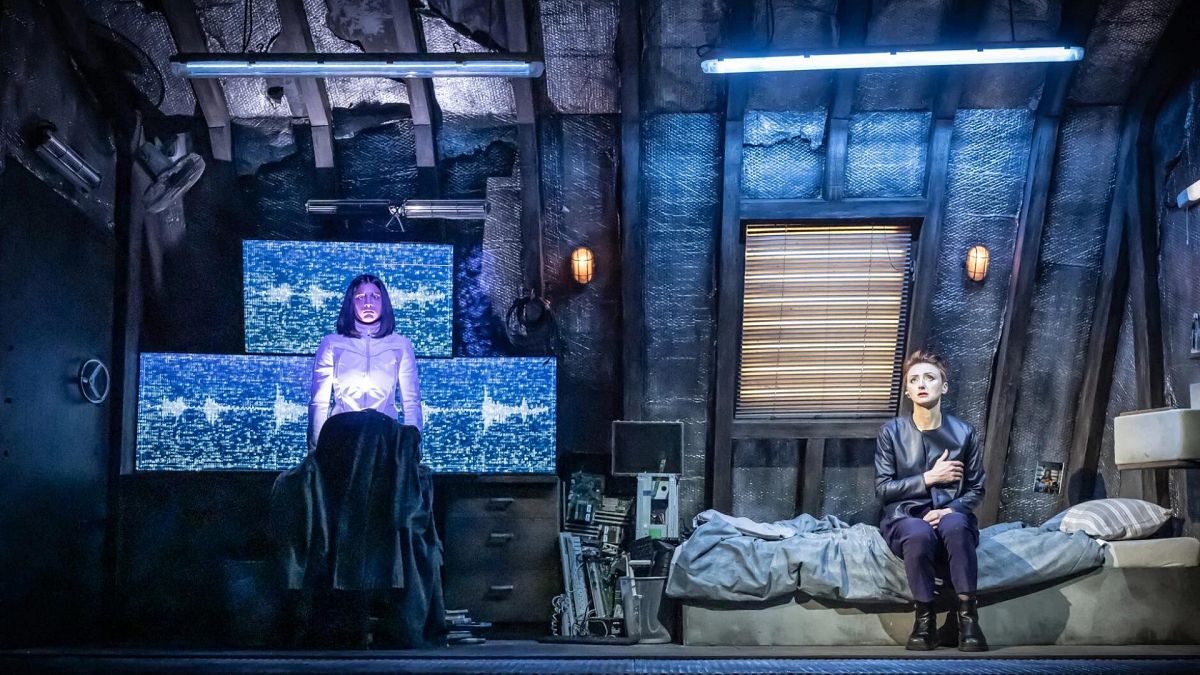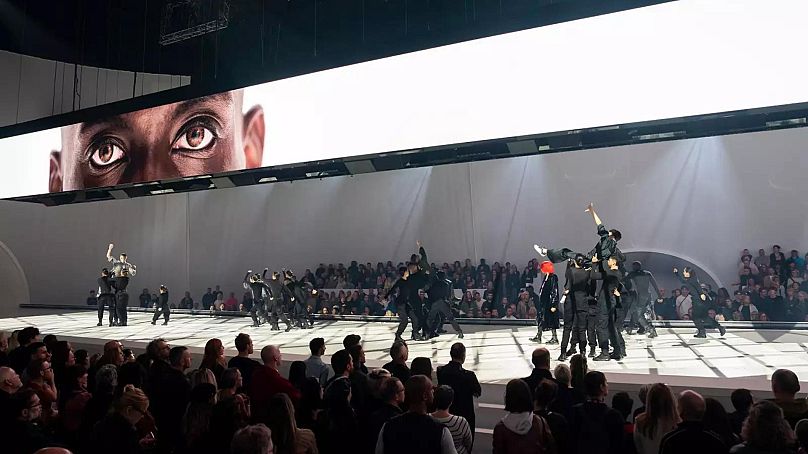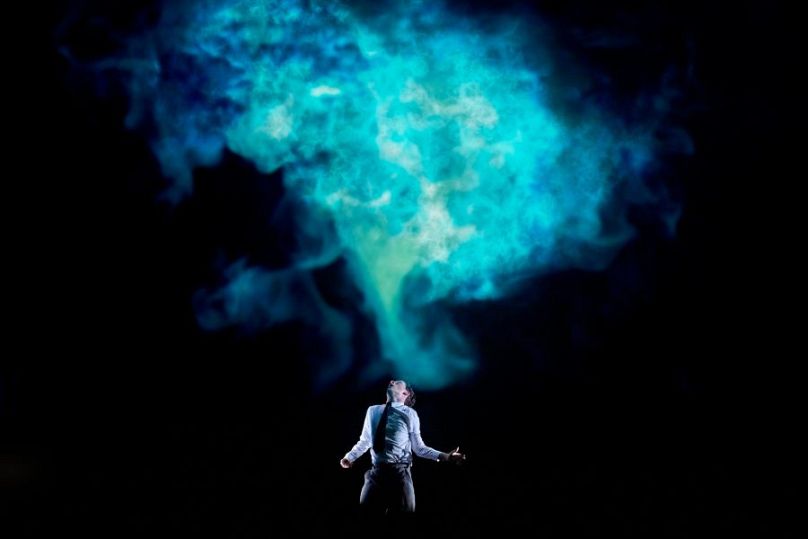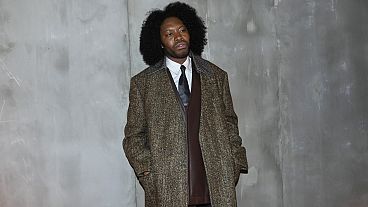As a new stage production of 'Minority Report' tours the UK, we look at the new trend of impressive sci-fi theatre adaptations.
A new adaptation of the Philip K. Dick novella ‘The Minority Report’ is touring UK theatre, with performances in London’s Lyric Hammersmith set to start on 20 April. It’s part of a new wave of science-fiction adaptations hitting theatres despite it being a historically difficult genre to stage.
‘Minority Report’ first opened at the Nottingham Playhouse earlier this year. The 1956 novella has already been adapted multiple times, most notably with the 2002 Steven Spielberg film starring Tom Cruise.
The theatrical version, which will also play at the Birmingham Rep before transferring to the Lyric, takes on the same story as the novella and film. Led by director Max Webster – known for his superb stage adaptation of ‘Life of Pi – and from a script by David Haig, ‘Minority Report’ gender swaps the protagonist as neuroscientist Dame Julia Anderton (Jodie McNee) as she is accused of pre-murder by the predictive crime programme she developed herself.
For anyone that’s seen the towering technical achievement of the Spielberg film or is familiar with Dick’s elusively kaleidoscopic sci-fi worlds, it might seem near impossible to bring these feats to the relatively humble settings of a theatre stage.
Theatre is often more comfortable leaning into the audience’s imagination than modern film. A one-actor show can comfortably navigate spatio-temporal boundaries in ways that might make a cinema viewer question plot holes. That’s not a criticism of film, it’s a note on how film’s vastly superior budgets and technical opportunity allow for a realistic representation of ideas while theatre’s limited resources enforce a continued degree of impressionism and abstraction.
Yet all this theatrical pontificating is negligible as a string of ambitious, big budget productions shake theatre audience expectations to the core in the sci-fi genre. ‘Minority Report’ is just the latest edition.
Spate of sci-fi adaptations
Late last year, the first proper Factory International show to debut in Manchester’s newly opened Aviva Studios – the biggest UK investment in a cultural project since the opening of the Tate Modern in 2000 – was ‘Free Your Mind’, an interactive dance adaptation of The Matrix from legendary British director Danny Boyle.
The hip-hop interpretation on the 90s sci-fi classic was all set pieces, creating a tableau of the original film’s themes as they collided with its setting in contemporary Manchester. With the jaw-dropping scale that Boyle perfected with his 2012 London Olympics opening ceremony fit into the new €282 million (£242 million) venue, ‘Free Your Mind’ stood apart from its source material.
On London’s West End, there have also been other bold adaptations of sci-fi works that would have once terrified production designers. They still probably do, actually.
The first was a musical adaptation of Back to the Future that landed in the West End in 2021 after several delays. On one level, the musicalisation of old IP is part of a general West End trend to avoid riskier new ideas (Frozen, Mrs. Doubtfire, Mean Girls). On another, riskier level, the production team managed to get an actual DeLorean to drive around on stage and fly. For anyone wondering, besides the impressive car-based set pieces, the musical is a dud.
More recently, there has also been the play ‘Stranger Things: The First Shadow’, a prequel to the Netflix series by Kate Trefry with a story from Trefry, Jack Thorne and the show’s original creators, the Duffer Brothers and directed by Stephen Daldry.
Anticipation was low for what was seen as a cash-grab attempt much in line with the current glut of uninspired adaptations in top-level UK theatre. We were all so wrong. ‘Stranger Things: The First Shadow’ is a technical masterstroke with some of the most impressive staging ever seen, perfectly translating the sci-fi horror of the original series to a theatrical setting.
History of sci-fi theatre
This new trend of adapting popular sci-fi media to the stage is likely to continue as producers and directors get increasingly ambitious with special effects. But sci-fi has a long and storied history within theatre.
One of the first examples of a sci-fi play is ‘Presumption; or, the Fate of Frankenstein’, written by Richard Brinsley Peake and first performed in 1823, it was based on Mary Shelley’s iconic 1818 horror novel and featured for the first time Victor Frankenstein’s servile assistant Fritz, who is now usually called Igor.
Serbian playwright Dragutin Ilić’s 1889 work ‘Posle milijon godina’ (After a Million Years) is often cited as one of the first examples of sci-fi in theatre form. The genre exploded in the 20th century. Czech writer Karel Čapek’s play ‘R.U.R.’, also known as ‘Rossumovi Univerzální Roboti’ (Rossum's Universal Robots) is widely credited for popularising the term “robot” in the English language.
In ‘R.U.R.’, a factory creates artificial workers from synthetic organic matter and calls these creatures robots, derived from the Slavic term for “work/labour”. Čapek doesn’t take credit for the invention of the term for artificial humanoid creations, attributing it instead to his brother, the painter and writer Josef Čapek.





